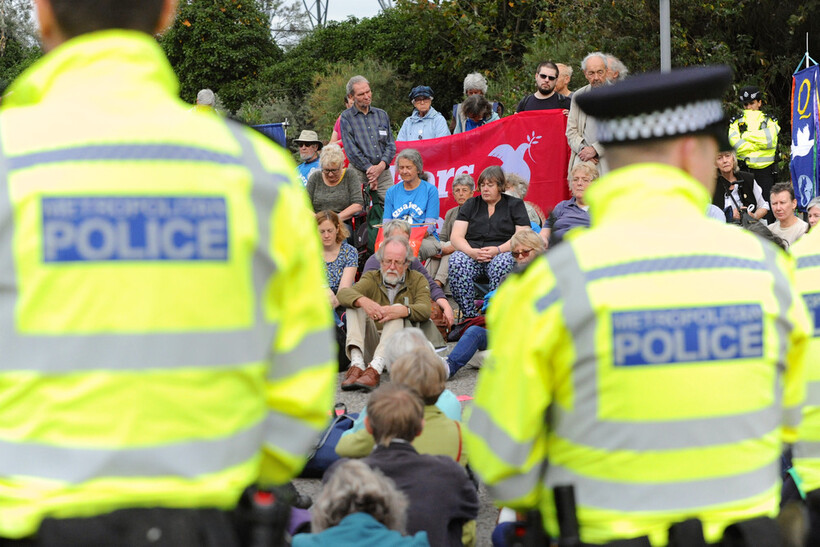Protecting the right to protest: action you can take
Grace Da Costa shares how you can take action to oppose the draconian new powers in the Policing Bill.

The recent vote on the Police, Crime, Sentencing and Courts Bill was deeply worrying. If the bill became law, it would severely limit the right to protest. It would also criminalise Gypsy, Roma and Traveller communities' way of life, introduce draconian prison sentences for certain crimes, and expand 'stop and search'.
I was dismayed to see it pass its second reading in the House of Commons by 359 votes to 263.
But it isn't over yet.
Parliamentary stages yet to come
The bill will now be considered in detail by one or two parliamentary committees – the Joint Committee on Human Rights and a public bill committee. Organisations and individuals will be able to submit evidence.
All MPs will get the chance to vote on the bill again at third reading and report stage. The bill will then be sent to the House of Lords for second reading, committee stage, third reading and report stages. MPs will get a final chance to vote on it before it becomes law.
So there are still plenty of opportunities for people to influence what happens.
What you can do
One of the most important things you can do is write to your MP about the bill. You can use our guide to contacting your MP (PDF). Here are five key ways to shape your email or letter:
- Appeal to shared values
Protest has been a key part of putting Quaker faith into action for hundreds of years. It is an important way of bringing about positive change in society. Appeal to values you hope your MP shares, such as how we all benefit from freedom of speech and the freedom to our way of life. - Outline the human rights implications
The right to freedom of peaceful assembly is a human right, and this bill will infringe it. Restrictions on this right should be guided by the aim of facilitating the right itself and promoting the rights of others, not in terms of things like disruption and cost. That's one of the reasons that people from across the political spectrum oppose this bill. - Share historical examples
Share examples of protests and movements in the past that have positively influenced the way we live today. Pick ones that will appeal to your MP, based on what you know about their interests e.g. women's suffrage, anti-fracking, or anti-apartheid. - Explain the disproportionate impacts
The bill will have a disproportionate, negative impact on marginalised groups, including Gypsy, Roma and Traveller (GRT) communities and Black people. This is against the Quaker testimony to equality. - Ask them to speak against it
It isn't too late for the bill to be stopped. Ask your MP to challenge the bill in parliament and to urge the Home Secretary to promote human rights rather than infringing them.
Other actions you can take
There are other important things you can do to oppose the bill, including:
- Sign petitions run by other organisations, such as NetPol's petition for a Charter for Freedom of Assembly Rights and Friends of the Earth's petition asking the government to fundamentally rethink its approach to protest and trespass.
- Support organisations who are campaigning against the bill, such as Liberty.
- Speak to three people about the bill and why it's important to oppose it. Talk about positive changes that might never have happened if this bill was in place.
- Put a poster or banner up outside your meeting house that can be seen by passers-by. Put a photo of it on social media and tag @BritishQuakers.


